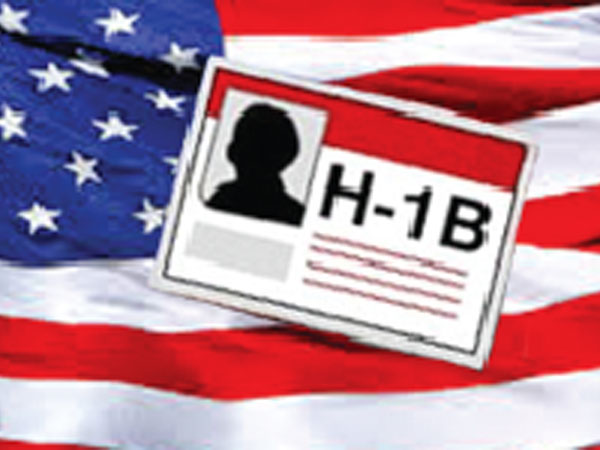
Uncle Sam seems to be all out to make sure that only a minimum number of Indian tech workers gain entry into his land, America.
There’s a significant element of apprehension and concern over immigration issue among IT enterprises in the country, in the context of the American Congress considering six new bills seeking to restrict use of H1B visas by Indian professionals, said an industry source who was present at the nine-member bipartisan delegation meet with the Karnataka chief minister Siddaramaiah a few days ago. It may be noted that the same delegation -- representing Committee on Science, Space and Technology from the US — had already met external affairs minister Sushma Swaraj in New Delhi and the minister expressed strong concerns about the US’s move to bring in additional legislation to make H1B visa regime more tougher for India.
The recent US lawmaker road show indicates that the Trump administration is very serious about restricting foreign worker inflow into the US.
“The US is going to streamline visa norms.
The lottery-based visa system will be soon replaced by a stringent, merit-based system to ensure that only the most deserving candidate with niche skill is given entry into the country,’’ said Rakesh Prabhu, partner, ALMT Legal, a law firm that offers immigration consulting to several IT companies.
There could also be various slabs coming up with several filters and riders in them, all aimed at making the process even more tight with regard to movement of workers, he added.
Protectionist legislation from established markets, whether in the form of curbs on the free movement of labour via tight visa regimes or in the form of additional taxes or tariff, always have had an adverse effect on overall business climate, noted Siddharth Pai, an independent industry observer in Bangalore.
“The proposed legislation may look a lot stronger for electoral interests at home for the US, but we only wish that the enforcement of it will be in accordance with market dynamics,’’ he said.
The bills pertaining to the H1B visa regulations have been in the pipeline for quite some time now, although the US government has implemented no major policy changes yet.
Nonetheless, given the fact that the Indian technology sector is largely dependent on this route in order to send their employees to the US, the proposed changes have raised eyebrows particularly in the IT sector, said Preetha S, senior member, HR Laws Practice at Nishith Desaid Associates.
The US is a country of immigrants, some 80 per cent of the population are migrants holding 100 different types of visas. So the country’s immigration policy is very comprehensive and also confusing. Visa is a sensitive subject for the US, especially when it has millions of people waiting in the wings to get localised.
Every time when there is a tweak in visa norms, Indian companies get worried. “In most cases we don’t understand the implications, as there is no proper interpretation available. Immigration is a pure-play legal issue and not a functional capability. No Indian companies have this capability, so they reach out to immigration law firms in Seattle, Los Angeles or San Francisco for help. The Indian side of immigration understanding is only in doing required documentation,’’ said BS Murthy, CEO OneTech Ventures, an executive search and recruitment automation firm.
Again, most immigration law professionals in India are familiar with immigration to Australia, Canada, New Zealand or handling students visa, business visa or tourist visa, and not properly handling US tech work visas (H1B), which is the critical chunk.
City-based immigration expert Stella Nagesh said already there is much confusion about existing H1B visa norms in terms of eligibility and specialised skill set. The proposed changes in visa law will only make the situation worst. “Trump or no Trump, immigration has always been a pain point for Indian tech firms. Immigration departments of most IT firms, including that of large companies, are manned by HR professionals, administration executives, facility heads or even travel desks in some cases and not by immigration law professionals and domain experts. As a result, most tech firms are already suffering huge visa rejections (8 out of 10 are rejected in some cases) or delays,” she cautioned.




